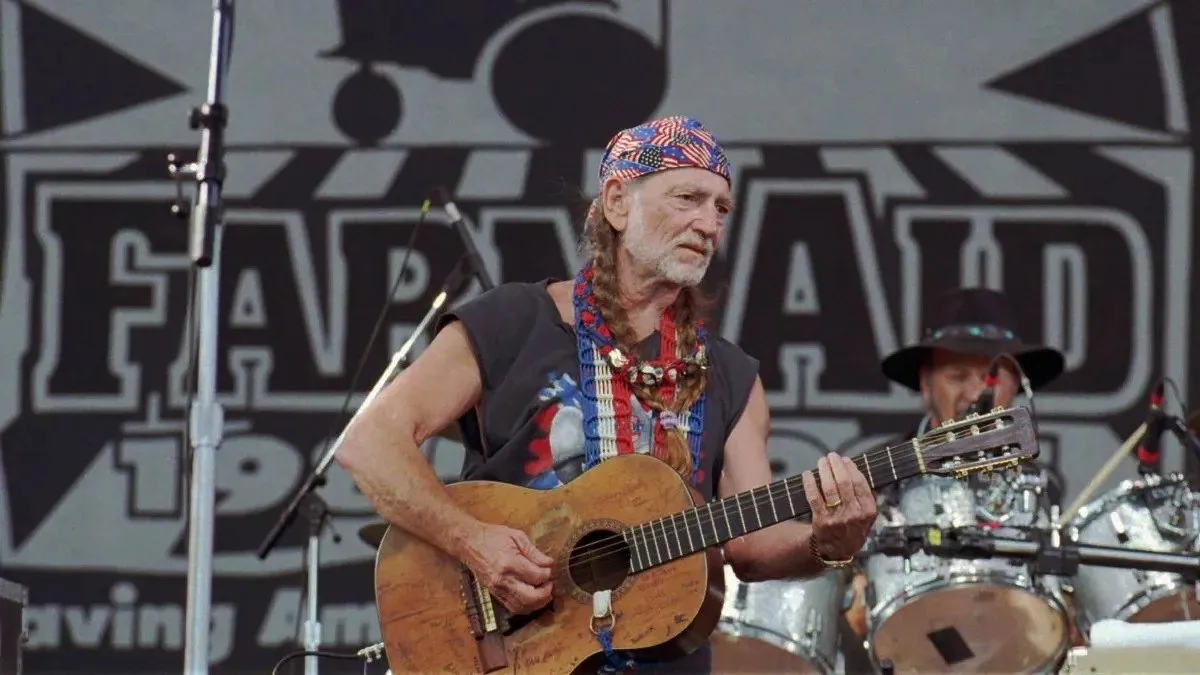In contrast to its dynamic protagonist, the “sole” documentary on Willie Nelson adopts a notably conservative approach.
The Overview: Willie Nelson stands as an American icon. Recognized as one of the paramount singer-songwriters in the annals of popular music, the tale of this ‘redheaded stranger’ is undoubtedly ripe for documentary treatment. Premiering on Friday, January 20th at the Sundance Film Festival, this five-part series claims to be the “only documentary” chronicling his journey, narrated by Nelson himself.
Willie Nelson & Family brings together a noteworthy ensemble. Notable contributors include musicians such as Dolly Parton, Bill Anderson, Brenda Lee, Jeannie Seely, Kenny Chesney, Margo Price, and Wynton Marsalis. Additionally, historian Michael Gray, writer John Spong, members of Nelson’s familial band, and several lifelong colleagues and friends add depth to the narrative.
On the Road: Helmed by directors Thom Zimny and Oren Moverman, both come with impressive credentials. Zimny, a Grammy and Emmy recipient, has directed notable documentaries on Bruce Springsteen, Elvis, and Johnny Cash. His collaboration with Academy Award-nominee and Emmy Award-winner Moverman should be a match made in heaven. However, the true challenge in Willie Nelson & Family isn’t an excess of directors but rather the evident need for tighter editing. While a plethora of testimonials, footages, and stories were collated, a reluctance to trim the fat is palpable.
Perhaps Willie Nelson & Family would have been better served as a singular film or a more concise three-part series. As it stands, the five episodes occasionally drift without a clear focus. The whimsical, non-linear format, although fitting for its subject, doesn’t always captivate its audience.
Roll Me Up and Smoke Me: The series commences with a deep dive into Nelson’s formative years and rebellious adolescence— hopping trains and raising eyebrows. (His candid remark, “We only had three things to do: fight, fornicate, and throw rocks” is particularly memorable.) Initial episodes hint at the makings of Nelson’s legendary Redheaded Stranger album. Yet, the storytelling often feels disjointed, meandering from his short-lived Air Force tenure, marital woes, and songwriting challenges.
Episode 3, predictably, delves into Nelson’s well-documented penchant for cannabis. Despite promises of exploring his advocacy for the plant, the episode leans more into tour anecdotes, Nelson’s personal boundaries with drugs, and other tales. Intriguingly, his spiritual exploration and deep reverence for hymns, such as “Will the Circle Be Unbroken,” are also spotlighted.
Soul Meetings: Without a doubt, Episode 4 emerges as the crown jewel of the series. The narrative unfolds around Willie Nelson’s profound artistic encounters, kicking off with a memorable “soul rendezvous” with the talented musician and producer, Booker T. Jones. A serendipitous meeting in Malibu led to an unprecedented collaboration. The episode underscores a striking fact: until then, no Black producer had ventured into producing a country record. Yet, their partnership birthed Starlight, a compilation of American classics that took everyone by surprise, especially from a maverick like Nelson.
The album exudes warmth and emotion, prompting jazz luminary Wynton Marsalis to remark how it signifies that the “roots of American music are intertwined.” This sentiment echoes the memories of Nelson’s cherished friend, Ray Charles, who often dabbled in country tunes.
As the documentary concludes, these profound segments linger in memory, making viewers yearn for more. Further in Episode 4, the focus shifts to Nelson’s collaboration with Enrique Iglesias and his cinematic adventures. Candid clips of Nelson alongside Kris Kristofferson, Waylon Jennings, and Johnny Cash leave us wanting more. It’s through such glimpses that Willie Nelson, the individual rather than the towering icon, truly comes to life.
Equally poignant is Nelson’s bond with his musically gifted sister, Bobbie. Multiple interviews illuminate her role as his rock and guiding star. During tumultuous phases, either personal or professional, Bobbie was his beacon. When the IRS seized Nelson’s assets, Bobbie was the guardian angel, ensuring their cherished piano remained unscathed.
The series’ title, Willie Nelson & Family, is hence twofold. While it denotes Nelson’s enduring band, by the end, Bobbie emerges as the unsung heroine of this tale.
The Verdict: Willie Nelson devotees are in for a treat with this series. It’s tailor-made for those who’ve cherished his melodies over the decades and seek glimpses into the chapters beyond his public persona. Perhaps this very audience was what directors Zimny and Moverman had in mind.
Regardless of one’s familiarity with Nelson, the documentary resonates universally with his cherished mantra: “Don’t be an asshole. Don’t be an asshole. Don’t be a goddamn asshole.”
Where to Watch: Willie Nelson & Family made its debut at the 2023 Sundance Film Festival. Its wider release details remain under wraps.
